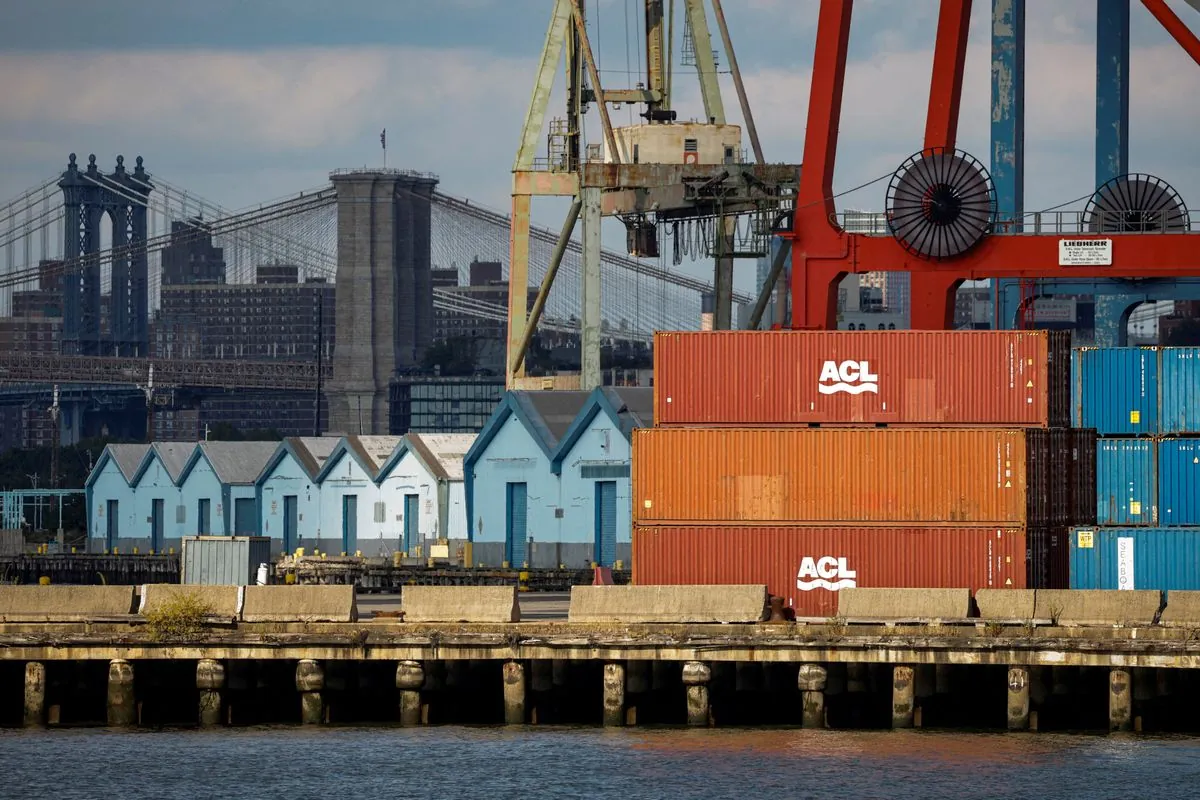The resolution of a recent U.S. port worker strike is anticipated to maintain stability in global supply chain pressures, as indicated by the New York Fed's tracking system. This development is likely to contribute to the ongoing trend of cooling inflation.
The New York Fed reported that its Global Supply Chain Pressure Index (GSCPI) eased to 0.13 in September 2024, reversing a trend of rising pressures that began in April 2024 when the reading was -0.96. The index, which measures deviations from historical averages, had peaked at 0.2 in August 2024.
Since early 2023, global supply chain pressures have remained at or below normal levels, playing a crucial role in the reduction of inflation. This trend allowed the Federal Reserve to initiate a cycle of rate cuts in September 2024. It's worth noting that the GSCPI, introduced in January 2022, integrates transportation cost data and manufacturing indicators from various countries to provide a comprehensive view of supply chain dynamics.
The recent calm in supply chain pressures stands in stark contrast to the disruptions experienced during the onset of the COVID-19 pandemic, which contributed to some of the highest inflation rates seen in 40 years across many countries. The Federal Reserve typically aims for a 2% annual inflation rate, using the Personal Consumption Expenditures (PCE) price index as its primary gauge.
The now-concluded port strike on the East Coast and Gulf Coast of the United States had initially raised concerns about potential inflationary pressures. The U.S. has 360 commercial ports handling over 2 billion tons of cargo annually, with the Port of Los Angeles being the busiest container port in North America. Any disruption to these vital trade hubs can have significant ripple effects on the global economy.
Austan Goolsbee, President of the Chicago Fed, commented on the situation:
"You really couldn't ask realistically for a better report for the economy, coupled with finding out that the (East Coast and Gulf Coast) port strike is not going to be an extended matter ... those are two pieces of very good news for the economy."
The resolution of the strike removes a potential risk to the economy and alleviates concerns about a resurgence in supply chain disruptions and inflation. This development is particularly significant given the historical context of supply chain vulnerabilities, such as the containerization revolution that began in the 1950s and the adoption of just-in-time inventory systems in the 1970s.
As global trade continues to evolve, with e-commerce growth significantly impacting supply chain dynamics in the past decade, maintaining stability in these complex networks becomes increasingly crucial. The recent events highlight the interconnectedness of global trade, reminiscent of incidents like the 2021 Suez Canal obstruction by the Ever Given ship, which caused worldwide trade disruptions for six days.
Looking ahead, innovations such as blockchain technology are being explored to improve supply chain transparency and efficiency. These advancements, coupled with careful management of supply chain pressures, will be essential in navigating the complex landscape of global trade and maintaining economic stability.
